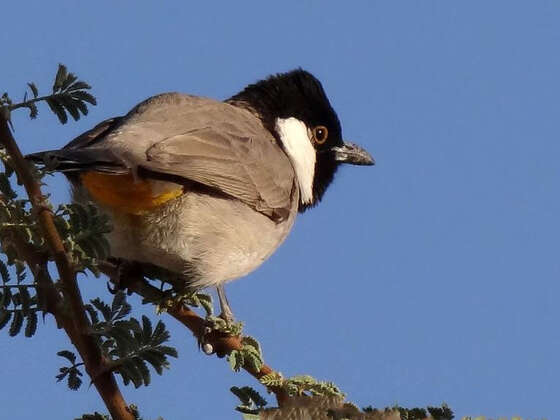Speak / Lesson 45
How to Talk About Feeling Under the Weather and Pain, and Parts of the Body
In this lesson, we cover a topic you will hopefully not have to use too often- the topic of not feeling too well. We'll learn how to express that you're not feeling well, how to ask others how they are feeling, and how to talk about pain that you have. Also, we will learn the Persian words for several parts of the body.

Listen Now
Download lesson MP3GREETINGS:
hello
سَلام
how are you?
چِطوری؟
Note: In Persian, as in many other languages, there is a formal and an informal way of speaking. We will be covering this in more detail in later lessons. For now, however, chetor-ee is the informal way of asking someone how they are, so it should only be used with people that you are familiar with. hālé shomā chetor-é is the formal expression for ‘how are you.’
Spelling note: In written Persian, words are not capitalized. For this reason, we do not capitalize Persian words written in phonetic English in the guides.
ANSWERS:
I’m well
خوبَم
Pronunciation tip: kh is one of two unique sounds in the Persian language that is not used in the English language. It should be repeated daily until mastered, as it is essential to successfully speak Persian. Listen to the podcast for more information on how to make the sound.
| Persian | English |
|---|---|
| salām | hello |
| chetor-ee | how are you? |
| khoobam | I’m well |
| merci | thank you |
| khayli | very |
| khayli khoobam | I’m very well |
| khoob neestam | I’m not well |
| man | me/I |
| bad neestam | I’m not bad |
| ālee | great |
| chetor-een? | how are you? (formal) |
| hālé shomā chetor-é? | how are you? (formal) |
| hālet chetor-é? | how are you? (informal) |
| khoob-ee? | are you well? (informal) |
| mamnoonam | thank you |
| chetor peesh meeré? | how’s it going? |
| ché khabar? | what’s the news? (what’s up?) |
| testeeeee |
Leyla: Hello, and welcome to Learn Persian with Chai and Conversation.
We are so glad you’ve joined us!
Leyla: In the next few lessons, we’re going to take a break with grammar, and instead focus on some kitchen Persian. What I mean by that is:
As always, you can find our previous materials as well as bonus materials for this lesson on our website at www.chaiandconversation.com
Leyla: But for now, Matt, you ready to begin the lesson?
Ready!
Leyla: Great, then let’s begin…
Leyla: So in this lesson, we’re going to cover a topic that we hope you won’t have to use very often, but that does happen to all of us, and that is the topic of not feeling very well.
we’ve already covered:
khoobam
I’m not well is khoob neestam
if you think back to those first lessons though, you’ll remember that we covered other ways of asking how are you. you could say chetori or halet chetoreh? How are you feeling. Hal means your state of being, your feeling. So halet chetore
halet chetore
Leyla: and you can answer
halam khoobeh.
Leyla: when you’re not feeling well though, you can say:
halam khoob neest
halam badeh
mareezam
cheteh?
dard daree?
kojat dard meekoneh?
so to answer this, we’ll need to know the words for different parts of the body.
parts of the body:
body: badan
sar
pa
galoo
dast
shooneh
so let’s go over pain with these,
the word for pain in general, like we said is dard. So someone asks dard daree? and you’ll say ‘baleh, dard daram.’ And you can answer more specifically exactly what pain you have.
for this we’ll need to know the word for different parts of the body.
Head, sar
saram dard meekoneh
back, posht
poshtam dard meekoneh
stomach, interestingly is sheekam so you could say
sheekamam dard meekoneh
or:
delam dard meekoneh
so let’s go over this again with a dialogue.
halet chetoreh?
halam khoob neest?
chetor? dard daree?
areh, saram khaylee dard meekoneh.
let’s learn the words for other parts of the body now.
cheshm
goosh
damagh
dahan
shooneh
dast
first learn one, but some of these we have two of. so:
cheshm
cheshmha
goosh
gooshha
pa
paha
dast
dastha
shooneh
shooneha
And that brings us to the end of lesson 44!
Ok great, so next week we are going to continue with the vocabulary of not feeling well, and different remedies, including very Iranian home remedies that everyone should know about.
Remember that you can find vocabulary lists, exercises, pdf guides and more on our website at www.chaiandconversation.com, with Chai spelled CHAI.
and until next time, khodahafez from Matt!
And beh omeedeh deedar from Leyla